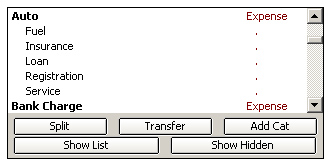
But what does this say about the overall consumer culture and our debt? Given that the median balance on the American credit card is $1,900, and 43% of Americans spend more than they earn, does this mean we are slaves to our cars?
According to this MSN Money article, the debt of America outside of our Mortgage is largely tied to non-revolving loans like the ones available for people to buy cars. That's just the capital cost for the car. Now what about operating the thing and roads? In 2005, the average American spends 18% of their income on transportation. Recent research suggests that this fluctuates between the exurbs and transit rich urban core with a difference of up to 16% between the extremes of 25% and 9% respectively.
In my own experience, I drive my car once a week and fill up the tank once a month. I probably wouldn't drive at all if my grandmother didn't live so far from BART. Otherwise I take Muni, BART, or walk. I would say that I'm around the 9% in transportation costs which allows me to pay a bit more in rent than I normally would be able to afford. But I'm also able to save up some money.
So in a consumer based, auto oriented society, we are largely tied to our cars, figuratively and sometimes literally. Over the last 60 years we've been so tied down that even personal finance software doesn't give us a transit choice but to enter it in ourselves. But as we've found out from parking, when given the choice for someone to unbundle, a lot of people will choose the alternative because there is one to choose. Someone gave an analogy recently, and forgive me for stealing it if you're reading but if there is a shelf full of only Pepsi how can you say that no one wanted to buy Coke? The choice wasn't there.

2 comments:
I have actually had this very problem.
Living by the Metro, I drop 30 to 60 a month on metro rides (I don't commute via metro).
I had to add a transit category.
Usually, when people "think" that transit is "expensive" they think about just the fare.
When they compare transit fares with their automobile, they think only about the gasoline. They ignore the insurance, cleaning and maintenance costs, parking fees, tolls, parking tickets, speeding tickets, other fines, storage space, accessories (toys) for cars, and the road costs (which are not covered by fuel taxes).
Post a Comment